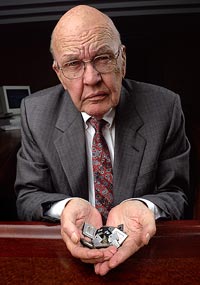A Quote by Noam Chomsky
Take the US. Women were not even able to vote until 90 ago, at about the same time they gained the right in Afghanistan. Rights of former slaves were very limited until the 1960s, and in some ways still are. In these and other domains there has been progress in democracy, though still seriously flawed. In other dimensions - the control of concentrated wealth over the political process, for example, things have gotten much worse in recent years. And there is much more, in both directions.
Quote Topics
Able
About
Afghanistan
Been
Both
Concentrated
Control
Democracy
Dimensions
Directions
Even
Example
Flawed
For Example
Former
Gained
Gotten
Limited
More
Much
Other
Over
Political
Political Process
Process
Progress
Recent
Right
Rights
Same
Same Time
Seriously
Some
Still
Take
Things
Though
Time
Until
Us
Very
Vote
Ways
Wealth
Were
Women
Worse
Years
Related Quotes
This is a world that is much more uncertain than the past. In the past we were certain, we were certain it was us versus the Russians in the past. We were certain, and therefore we had huge nuclear arsenals aimed at each other to keep the peace. That's what we were certain of... You see, even though it's an uncertain world, we're certain of some things. We're certain that even though the "evil empire" may have passed, evil still remains.
We thought that the odds of things working OK were up in the upper 90 percent or we wouldn't have gone. But the - there were some problems cropped up on the flight but was able to take care of those OK and - although they were things that we hadn't really trained that much for. But it was the time of the Cold War and so there were was a lot of pressure on the - to get going and the Russians were claiming that they were - Soviets were claiming they were ahead of us in technology.
Victor Hugo said you can stop an invasion of armies, but you can never stop an invasion of ideas. There's nothing more powerful than an idea whose time has come. It wasn't until 1920, four years after my mother was born - and she's still alive and healthy - that women were given the right to vote. Now it's hard even to imagine that for the greater part of the history of our country fifty percent of the population was not allowed to vote.
Until relatively recently, mass political movements were still about basic rights of food, shelter, education and self sufficiency. The reasons fewer people vote these days, or turn up for political meetings, is that for the vast majority of us those rights have been fulfilled. These days it's in the adverts for mobile phones or foreign holidays where phrases like "Join the Revolution!" and "Cry Freedom!" are bandied about for a generation which knows nothing of their provenance. Just as now we have luxury illnesses to replace real ones, so now we have luxury politics.
To reconcile conflicting parties, we must have the ability to understand the suffering of both sides. If we take sides, it is impossible to do the work of reconciliation. And humans want to take sides. That is why the situation gets worse and worse. Are there people who are still available to both sides? They need not do much. They need do only one thing: Go to one side and tell all about the suffering endured by the other side, and go to the other side and tell all about the suffering endured by this side. This is our chance for peace. But how many of us are able to do that?
It's not by coincidence that a lot of protesters against the new presidency in America and in front of the Trump Tower, even in London... the protesters were 90 percent women. The image of the woman and the problem of the woman still exists. Not exactly in the same terms as 200 hundred years ago, but we still have the problem here.
I was a young feminist in the '70s. Feminism saved my life. It gave me a life. But I saw how so much of what people were saying was not matching up with what they were doing. For example, we were talking about sister solidarity, and women were putting each other down. We were talking about standing up for our rights, and women weren't leaving abusive relationships with men. There were just so many disconnects.
The Fourteenth Amendment, after the civil war, in principle brought former slaves into the category of persons, theoretically. But if you actually look, almost all the cases brought up for personal rights under the Fourteenth Amendment were by corporations. Freed slaves couldn't do it. In fact they were pretty much driven back into something like slavery by a north - south compact, that allowed former slave states to criminalize black life, which made a criminal force that was basically used as a forced labor force, up until the 1930s.
We [Afghanistan government] were in the process of cleaning up the government when these attacks happened in the north - not only in Kunduz, but also in other provinces. Our special forces are limited - we cannot be everywhere at the same time and we had to defend every district regardless of how insignificant it might be, because of the very social and political makeup of this country.
I think Scandinavian Paganism, to us here, is more interesting than any other. It is, for one thing, the latest; it continued in these regions of Europe till the eleventh century; 800 years ago the Norwegians were still worshipers of Odin. It is interesting also as the creed of our fathers; the men whose blood still runs in our veins, whom doubtless we still resemble in so many ways.




































